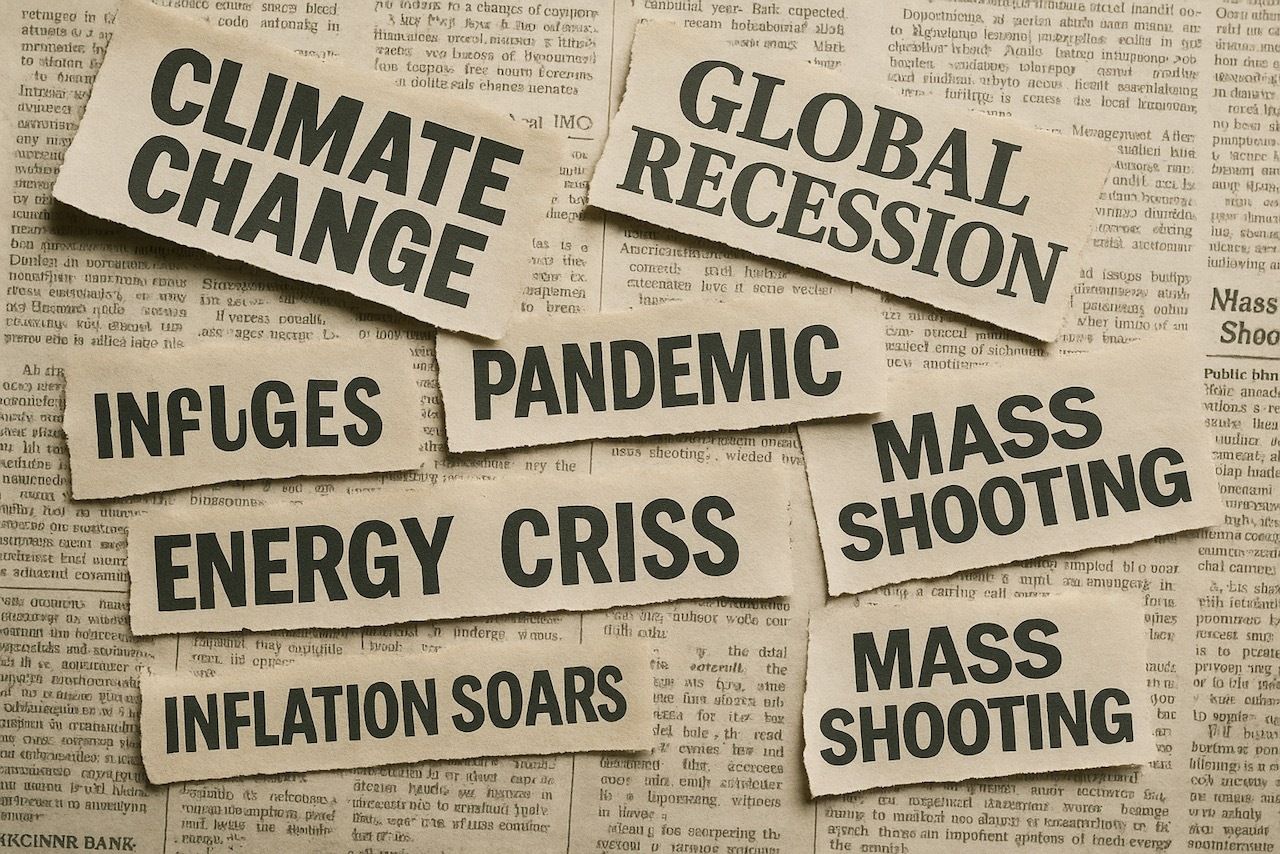I was speaking with Florian Irminger on my podcast recently (To hear - click this: Navigating the Global Realignment: Human Rights at the edges.). He is a human rights leader I've known for over a decade. He said something that really grabbed me:
"We lost this decade. We're in the middle of it, 2025, but given how the situation is, we know we lost this decade. This is going to be the black hole decade. What do we do with the next one?"
He wasn't being dramatic. He was looking at the data. For the first time since 1945, the indicators we've grown accustomed to seeing improve are regressing. Fewer people escaping poverty. More children dying in their first year. Rising hunger. Falling education levels. Increasing corruption.
But here's what struck me: Florian wasn't despairing. He was integrating.

The Jazz Musician's Secret
You may know me by now and how I love jazz and the process of improv (read more here)
Miles Davis was asked if he ever played a wrong note. He laughed and he pointed out it wasn’t the wrong note blown, it's the next one played that matters.
What he, like every great improviser, knows is that the "mistake" isn't actually a mistake. It is information. It tells you something about where you are, where the music is going, and what needs to shift for the next phrase to land with power.
We're living in the wrong note right now. The question isn't how to pretend it didn't happen or rush to fix it. The question is: what is this teaching us about what comes next?
The Integration We Never Did

Image by AI
Twenty-five years ago, French philosopher Jean Claude Gibo wrote that we never properly recovered from the 20th century, the worst century in human history. We didn't close the books. We didn't integrate the learning. We just raced full-speed into the next century carrying all that unprocessed trauma and wisdom.
Sound familiar?
How many of us are still running on the momentum of pre-2020 strategies? How many organizations are trying to return to "normal" instead of asking what this decade of disruption is trying to teach us?
In my coaching work, I see this pattern constantly. A leader hits a crisis, gets through it, and immediately wants to get back to business as usual. But the crisis was information. The breakdown was data about what wasn't sustainable.
Skipping the integration phase isn't resilience. It's just setting up the next, bigger breakdown.
What if Loss is Preparation?
Here's what Florian helped me see: maybe this black hole decade isn't a failing. Maybe it's preparation.
Maybe we needed to lose our illusions about infinite growth on a finite planet. Maybe we needed to discover that our institutions aren't as solid as we thought. Maybe we needed to feel the cost of fragmentation before we could value integration. Maybe we needed to exhaust ourselves trying to solve complex problems with simple answers.
I'm not suggesting we celebrate suffering or become passive about injustice. I'm saying that looking away from what is already happening prevents us from learning what it has to teach.
The Pivot Moment
This is where the Pivot becomes essential. Not as an escape from what's happening, but as a way to work with it.
The Pivot isn't about abandoning everything you know. It's about taking what you've learned, including what you've learned from failure, and finding new ways to apply that wisdom.
It's the 45-degree turn that honors your experience while opening to what's trying to emerge.
Florian exemplifies this. He didn't abandon human rights work when the old approaches slowed in getting traction. He found a new way to do it: working between organizations instead of within them, creating space for leaders to be honest about not knowing instead of pretending they have all the answers.
What's Emerging
When I asked Florian what whispers he was hearing from the future, he said this:
"Humanity is really equipped to deal with all of this and to come together. I just don't know who will be the 'we' and where it will happen and when. But we can overcome this moment. We've done it before."
The pyramids are still standing, he reminded me. It takes only seconds to destroy what humanity builds over centuries, but what we build with intention and wisdom endures.

Your Next Note
So here's my question for you: What if this decade of apparent loss is actually setting up the next decade of breakthrough?
What if the disruption in your industry, your organization, your career isn't a detour but preparation for something more aligned with who you're becoming?
What if the old maps had to become obsolete before you could learn to read the terrain itself?
I'm not asking you to be grateful for suffering. I'm inviting you to be curious about what this moment is preparing you for.
The wrong note has been played. We're in it. We can't unplay it.
The only question that matters now is: what's your next note going to be?
What whispers from the future are you hearing?
I'd love to know what's emerging in your world as you navigate this black hole decade. Hit reply and tell me what you're sensing.
P.S. If you're feeling the weight of navigating uncertainty in your leadership, you're not alone. Sometimes the most powerful thing we can do is create space to process what we've been through before rushing toward what's next. That integration work, both personal and professional, is where the real wisdom gets forged.
Keep reading here. Let me know your thoughts.
Do you want to take this further and explore working together? To read more by me, go here. The Pivot Podcast, here. |

